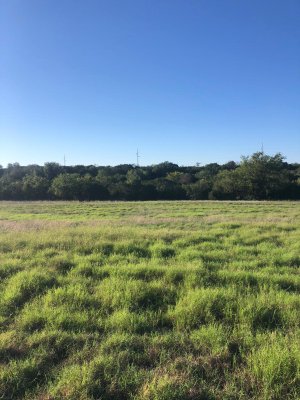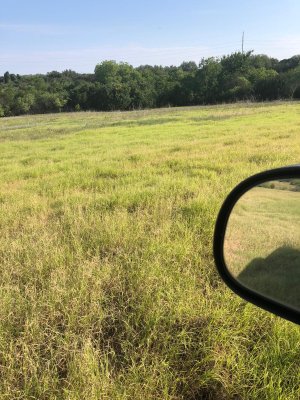I'd say in general, you've got a good thing going with him... BUT, haying is probably the hardest thing you can do on a piece of ground. You'll have the soil "covered" with a cover crop (a good thing)... but everything that it grows will be taken off as hayto be fed on somebody else's ground... and you'll receive the compaction of haying equipment, and the cutting short and taking 90% of the growth, how many times a year, and for 5 years in a row??? That's hard on the ground and the soil biology. Then throw in inorganic fertilizer impact, and maybe herbicide impacts besides....
If there was a way to get him to instead "hay it" by rotationally grazing it, and maybe even feeding his cattle with hay brought in from somewhere else onto it when it's not the growing season, you'd be further ahead. He'd end up putting fence up on it then too (unless it's already fenced... haven't been given those details yet).
OR... maybe he could pasture it "all" off (leaving behind an appropriate amount of residual), and at the end of the haying season, YOU could put cattle YOU OWN on it in the "non-haying season", feeding them hay you purchased from somewhere else, thereby improving the ground? OR, maybe you could stipulate that he can take 2 hay cuttings a year off, but then he has to leave the third cutting (or whatever is contextually appropriate) for grazing as winter stockpiled feed... which he is allowed to graze off..., OR... you could maybe feed some custom fed cattle on it during the non-haying season?
All options... my point is, by grazing it, you'll have opportunity to improve the land alot more than by haying it. By allowing at least that one last crop of the season to reach maturity, you'd be helping the root structure of the forages, which in turn helps the soil structure and aggregation, carbon cycle, and water cycle. By appropriately GRAZING that last crop off, you'll be adding microbial life back into the soil, along with manure fertility. Feeding on it during the non-haying season will bring it along much faster than just leaving it sit until the next growing season. It takes a few years to get to really good, biologically active ground... these 5 years while being used by someone else but managed optimally, with their "investment", could be your opportunity to "inherit" that good, biologically active ground!


